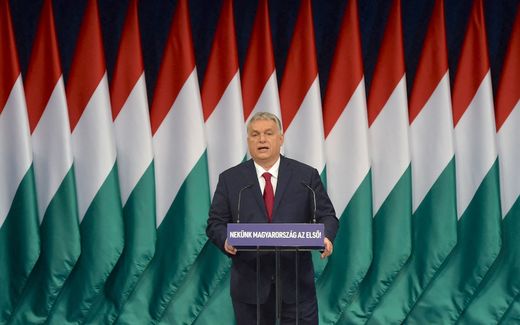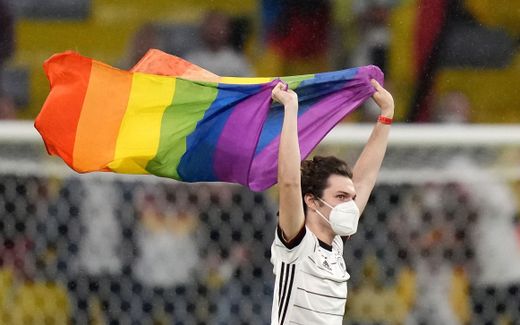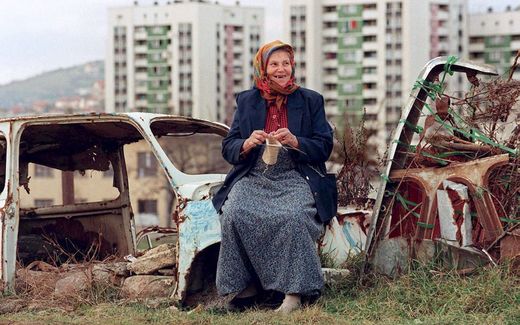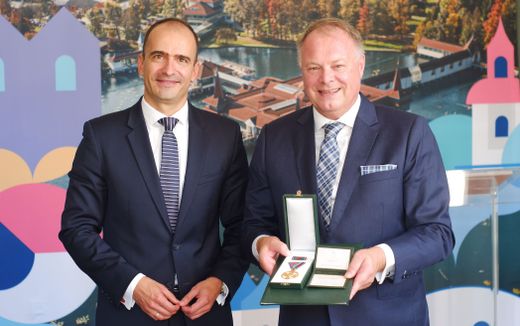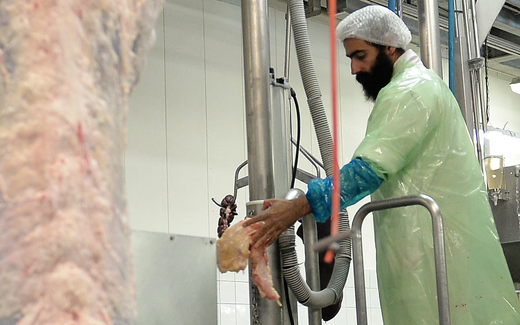Comment: There is only one thing the Hungarian nation wants: to survive
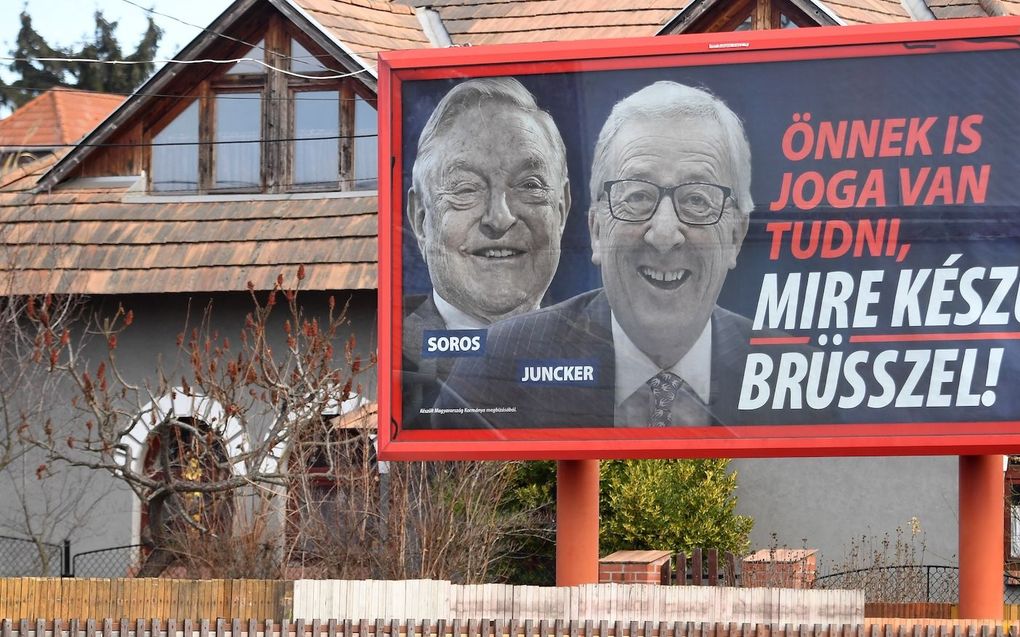
Bad taste. That was Orban's poster campaign against Soros and Juncker. He could better focus on the work of the French thinker Montesquieu. Photo AFP, Attila Kisbenedek
Central Europe
I almost regretted going to Budapest. Not that the city was no longer one of the most beautiful in Europe. But the poster campaign against George Soros and Jean-Claude Juncker I found disgusting.
Why did Prime Minister Viktor Orbán throw mud so unstylishly? Everyone understands that the Hungarian prime minister has very different ideals than (especially) Soros. On Thursday, the Hungarian-born American billionaire spoke at the security conference in Munich. Orbán will deliver his State of the Nation this Saturday. You might see significant differences if you compare the speeches side by side.
Basic feeling
Remarkably, after 12 years of Orbán’s premiership, many people still feel a strong need to speak out for or against him, including Christians.
Apparently, there is no easy answer to the question whether, as a Christian, you can support Orbán. I don’t have one, either. But I do think it makes sense to know a few things beforehand.
Firstly, this: Hungarians do not live in Western Europe, but in Central Europe. As a small nation, they had to survive in a strange and sometimes hostile environment for centuries. In none of the neighbouring countries did people understand anything of their language. All kinds of humiliations (such as the significant loss of territory after World War I) made the people militant.
Because of all this, Hungarians have a robust basic feeling: to survive as a nation. A Roman Catholic priest in Budapest once told me there is even a Biblical warrant for that. In 1956, the first major uprising in the Soviet Union took place, not coincidentally, in the People’s Republic of Hungary. And joining the European Union in 2004 had only one goal: survival.
EU’s design
The second thing to know is this: the EU is a Western European house, meant to guarantee peace after World War II (mainly between Germany and France). The accession of Eastern bloc countries has not changed that design.
For that reason, the EU seeks its purpose in breaking down borders and integrating peoples. When Hungary erected a fence along its southern border during the immigration crisis in the summer of 2015, the rest of the EU saw that as almost a form of blasphemy. But a nation that wants to survive sees immigrants as a threat. That even EU leaders themselves are now –in February 2023– talking about a strengthened border will be met with a smile in Budapest.
Breadwinner
For a nation to survive, you need children to be born. That is a sensitive issue. As in the rest of Europe, Hungary lacks babies. In other countries, they do not speak about that since they fill up the shortages with immigrants. But since they are not there in Hungary, the population is shrinking.
The alternative is to promote families and stimulate them to get children. A young mother with three kids will be exempted from taxes and can stay at home. That is precisely the opposite of The Netherlands (in Western Europe); women are stimulated to work, immigrants make the population grow, and breadwinner families pay seven times more tax.
The problem with family is that it is part of social ideology. That makes even old institutions vulnerable to new visions. In Western Europe (and therefore in the EU), it is seen as the logical trend to adapt family legislation to gay rights. Marriage is opened up for people of the same sex. And even two men can adopt a child since there should be no difference between the male and female contribution to the child’s upbringing.
Most of the Central European countries are much more traditional. Also, Hungary sticks to the old model. It has marriage enshrined as a relation between male and female in the Constitution. Homosexuals can register their partnership but can neither marry nor adopt children.
In the summer of 2021, the country shocked most other EU countries by “protecting” the children against the “promotion of homosexuality” by law. This was a moment that the Western and Central European world views were rubbing.
Trias politica
What do we think about all this, also as Christians? Well, are we sure that we are obliged to have an opinion about everything? When I visit Budapest as a journalist, I go there to listen and to interpret. After that, I might understand a little bit. For me, that is enough.
Still, I have one last question. The French Enlightenment philosopher Montesquieu (1689-1755), does he belong to Western Europe, or does his vision of the “separation of powers” apply to the whole world? Only if the latter is the case can we demand Hungary (and Poland) to give the judiciary their independence. We know that the executive power is far too dominant in this country. In one way, the Hungarian people want it like that. But they might not want all the long-term consequences. Judges must be independent from political structures. Politicians have to respect that.
I know that the Christian thinker Groen van Prinsterer in his fundamental book “Unbelief and Revolution”, is not very positive about Montesquieu. But I dare to differ here. The so-called “trias politica” has been a blessing in bringing stability to many countries. I am sure it will help the Hungarians in their survival as well.
Evert van Vlastuin (1972) has been working as a journalist from the early 90s.

He has interviewed several Nobel Peace Price winners as the former South African president F. W. de Klerk and two from Northern Ireland, John Hume and David Trimble.
From 2001, he worked as a foreign news reporter for the Dutch Reformed Daily. Since 2021, he works as managing editor for the start-up CNE.news.
Respond to Evert by e-mail
Related Articles


